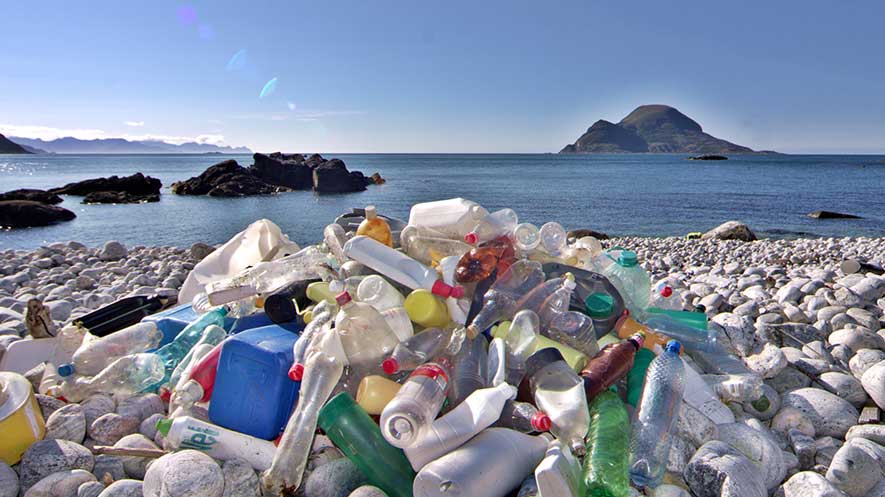Marine debris is flooding our oceans at an estimated rate of eight million tons of trash annually, and its results are devastating. Scientists have observed nearly 700 different marine species that have already been negatively impacted by marine plastics, and trash could outweigh fish in the oceans by 2050.
Images of garbage-covered beaches and animals choked by plastic rings flashed across television screens to directly illustrate the effects of marine trash at the Senate Environment and Public Works Subcommittee hearing. The seemingly endless photos painted a picture of increasing pollution dominated by land-derived plastics. Unlike more contentious environmental issues this committee has heard, there was bipartisan agreement on the mounting problem of trash in our oceans. “There is no denying the role humans play in marine debris,” stated Ranking Member Sheldon Whitehouse (D-RI). Full committee Chairman James Inhofe (R-OK), motivated by his passion for sea turtles, has seen first-hand the impacts of garbage on sea life and is eager to minimize marine debris.
Beach cleanup efforts have been successful in alleviating ocean trash accumulation. Nicholas Mallos (Director, Trash Free Seas Program, Ocean Conservancy) described 110 million tons of debris that have been removed from the beach by his organization and their volunteers through 29 years of the International Coastal Cleanup program. However, both Mr. Mallos and Jim Kurth (Deputy Director, U.S. Fish and Wildlife Service) insisted that cleanups are not enough to solve the problem; we need to stop dumping trash, whether through intentional actions, mismanagement, or carelessness. Since China, Indonesia, the Philippines, Thailand, and Vietnam have contributed 60 percent of ocean plastics, this requires an international effort. Dr. Jenna Jambeck (Associate Professor, College of Engineering, University of Georgia) explained that these countries are particularly prone to ocean polluting because their recent economic growth has led to excessive waste generation but without appropriate waste management infrastructure or education. The London Convention on the Prevention of Marine Pollution by Dumping of Wastes and Other Matter of 1972 is an international agreement that limits dumping by ships, which was implemented in the U.S. through the Marine Protection, Research, and Sanctuaries Act of 1972. However, there is not yet an equivalent international agreement for terrestrial-based marine pollution, which makes up more than 80 percent of the problematic debris.
Increased education about oceanic debris was the most commonly-touted solution recommended by panelists and committee members alike; however, no suggestions for how to fund the educational efforts were proffered. Subcommittee Chairman Dan Sullivan (R-AK) admitted, “All agency budgets are kind of stretched” and hoped that more efforts could be undertaken by volunteers. Last year, Congress banned some microplastics via the Microbead-Free Waters Act of 2015, H.R. 1321, but they are eager to take on larger plastic inputs in the near future, either through increasing education or through international policy initiatives.
Given the scale of marine debris problem as far afield as Midway Island, where five to ten tons of trash are removed each year, according to Mr. Kurth, it is important to act soon before our oceans and coasts are irreparably damaged.





